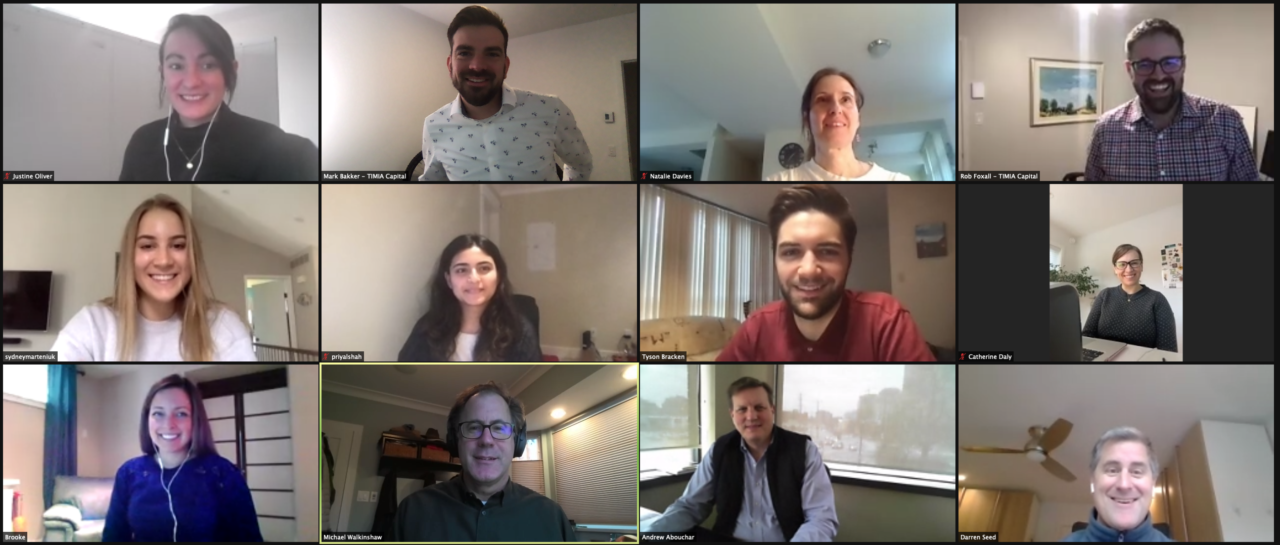Business-as-Unusual in 2020: A Year in Review
Published on

I don’t think any 2020 review blog post can omit to mention COVID-19. It was arguably the most humbling event we’ve experienced in modern history, both from a human and economic perspective. If 2020 taught us anything, it’s that Mother Nature still rules the roost—and she likes to throw curve balls. There is no such thing as “business-as-usual”.
The businesses that weathered the storm could adapt to any type of business-as-unusual that 2020 threw at them.
Software companies performed better than companies in most other sectors, demonstrating their resilience through both up and down cycles. Even those companies serving hard-hit industries pivoted quickly to adapt to the new environment.
Another reason software companies weathered the storm is that they already had the systems and processes in place to support remote workers. Where companies in other industries had to deal with the challenges of setting up remote processes, software companies could keep their focus solely on the front end of the business.
Team TIMIA Performance
Thankfully, every member of Team TIMIA remained healthy and safe during this rough year. And, like most companies in the technology sector, we already had a high degree of internal capability for working remotely.
Our internal and external organizational strategies always combined online and in-person processes. So, while 2020 made in-person origination more difficult, online origination boomed. We originated $17 million in loans—more loans than any other year and an increase of 31% from 2019—even though we paused for almost three months due to COVID-19.

Greg Smith, Co-Founder, TIMIA Capital
We’re thankful for our tech-savvy team and portfolio which made the transition to fully-remote work so seamless. That said, Team TIMIA is a sociable bunch, and we are very much looking forward to getting back to our beautiful new head office in downtown Vancouver.
Our co-founder and friend, Greg Smith, retired from the business earlier this year to focus on his health. We were very sad to see him go, but his entrepreneurial spirit is still part of everything we do, and we were very proud to see our team stepping in to fill big shoes.
We also grew our capital base in 2020. Our first limited partnership (LP1) delivered excellent returns to investors. As a result, most of the investors that funded LP1 went on to fund the first close of our second limited partnership (LP2).
To support our business’s growth, we hired several new team members in 2020—Priyal Shah, Tyson Bracken, and Justine Oliver—to grow essential functions like business intelligence, business development, and finance.
Portfolio Resilience in 2020
In March, TIMIA paused our origination activity in case our existing portfolio companies needed some extra cash to get them through the predicted rough patch.
In the end, our portfolio companies didn’t need additional support—their cash positions were better than ever, and they had solid controls in place. We actively resumed origination in June and began funding new portfolio companies in August.
In total, we funded nine new portfolio companies in 2020 including Zmags (Feb), Measured (Mar), Cova (May), Attendease (Sept), Surefire Local (Sept), among others. We look forward to seeing how they use their funds to grow their businesses over the coming months.
SaaS Resilience Evident in M&A Activity
The resilience of the SaaS industry during COVID-19 meant that we saw a surprising number of exits and buyouts in the latter half of the year, as growth equity players resumed activity with vigor.
2020 saw an astounding nine companies in our portfolio exiting successfully, with six exiting post-COVID. This is a testament to the companies’ ability to deploy our capital and reach their exit plans quicker than expected. It also demonstrates the direct link between the robustness of the software industry and investment interest.
Of the seven companies that exited, two-thirds were bought out by growth equity or acquired by other companies, and one-third went on to bigger financing events.
Looking Forward to 2021
TIMIA Capital is entering 2021 optimistic about what it holds for the software industry. The resilience our portfolio has shown this year is admirable, and demonstrates how well our model works.
Stay tuned for an upcoming blog post on our industry predictions and plans for 2021.
Looking for non-dilutive capital?
TIMIA Capital works with recurring revenue technology
businesses between $2 – $20 million ARR.



